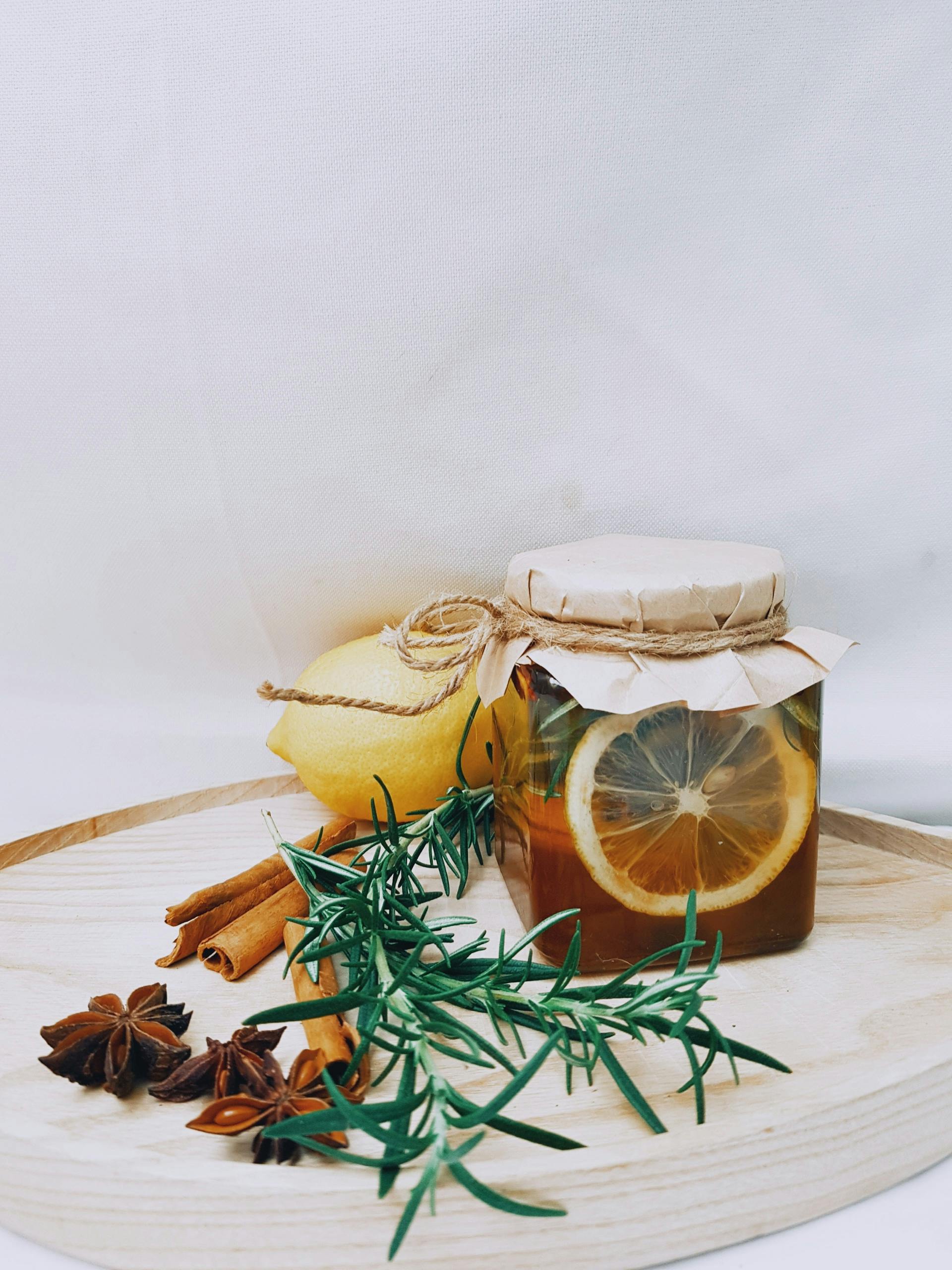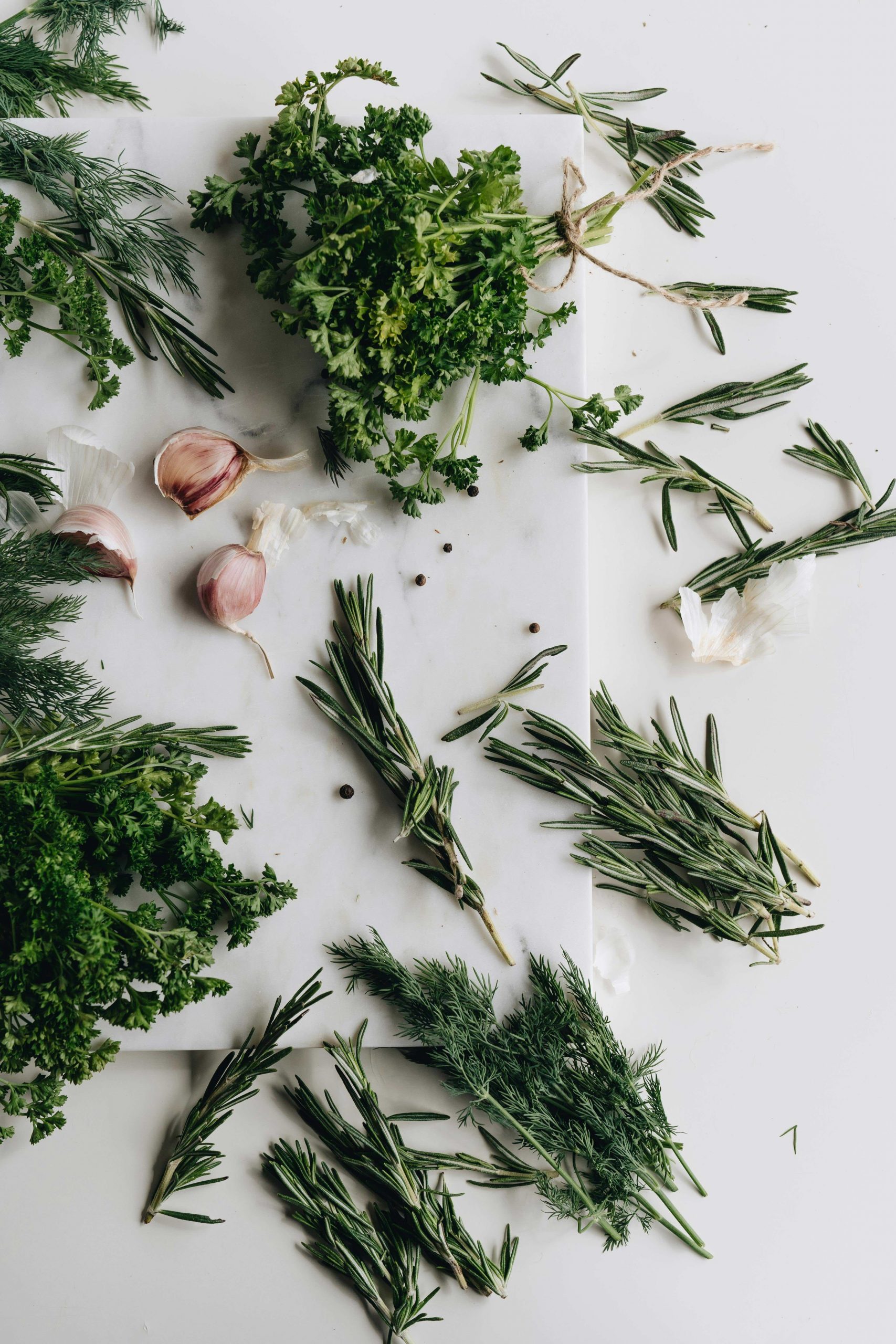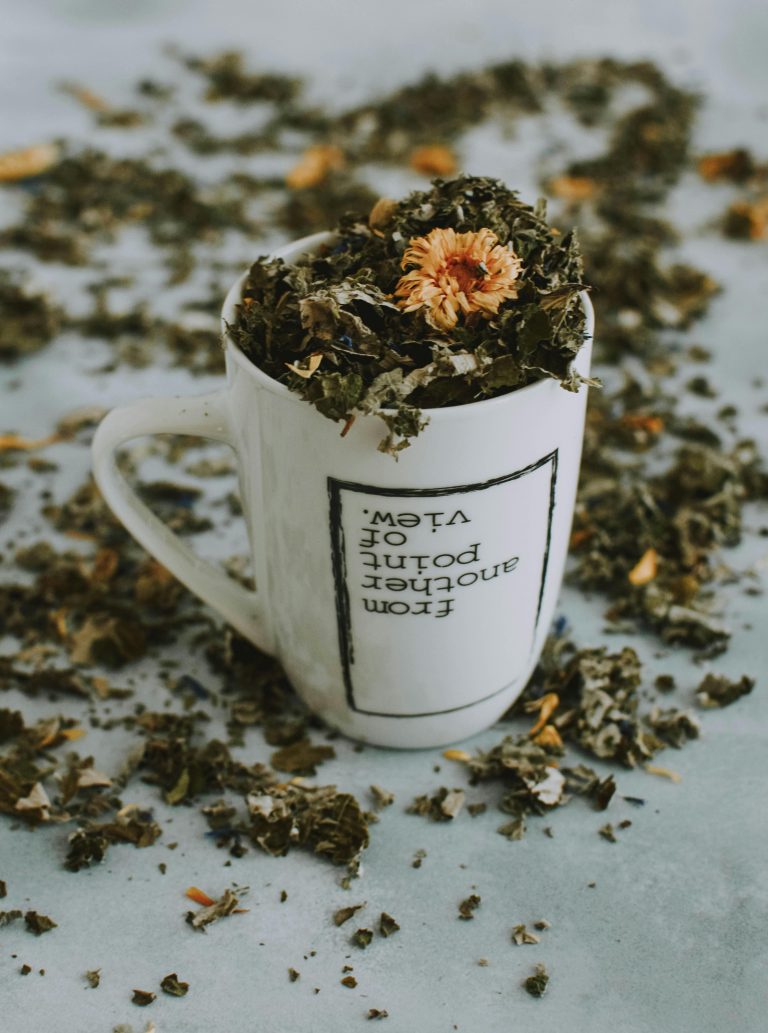These past few weeks, we’ve been witnessing the final bursts of cold fronts and cold wintery nights, expectantly awaiting those special first few days of Spring. It’s easy to let your guard down, but those late-season sniffles can still sneak up on you.
The good news? Your kitchen and garden might be hiding the secret to feeling better. From calming teas to immune-boosting infusions, here are the best herbs to help curb those final flu symptoms and help your body bounce back before spring.
The best herbs to boost your immune system
Herbs have been used to make teas, tinctures, and poultices for many years, as far back as ancient Egyptian and Roman times. These herby remedies have been used as natural treatments for various illnesses and ailments, such as open wounds and flu symptoms. The research on their actual effects is limited; however, using them in your daily diet can give your immune system the boost it needs. It is worth noting that if you’re experiencing symptoms that do not go away naturally, you should see your GP.

Here are 10 herbs filled with antibacterial and antiviral properties:
1. Oregano
A popular herb in the mint family, it’s packed with carvacrol, a powerful antimicrobial compound.
How to use:
- Steep fresh or dried leaves in hot water for a DIY oregano tea
- Add to your usual dishes for extra flavour and immune support
- Make oregano oil (by steeping fresh leaves in olive oil) to take as a supplement
2. Sage
Another member of the mint family, sage is an aromatic herb that has been used for many centuries to help treat infections. Sage has anti-inflammatory and antiseptic properties that help soothe sore throats and support respiratory health.
How to use:
- Gargle with cooled sage tea for throat relief
- Steep with honey and lemon for a soothing tea
- Add to roast veggies, stuffings, pasta and meat dishes (pork and chicken love sage) for a healing twist
3. Basil
There are many types of basil, ranging from sweet to holy basil, that may fight certain infections, soothe inflammations, and boost overall brain health. This herb is packed with vitamins and minerals like calcium and vitamin K, as well as a range of antioxidants like eugenol and limonene.
How to use:
- Steep fresh or dried leaves in hot water for a calming herbal tea
- Add fresh leaves to salads, soups, pastas, and pesto for a raw nutrient boost
- Find tinctures or capsules made from holy basil (tulsi)
4. Garlic
Known not only for it’s puchy flavour, but garlic is also known as a natural remedy for a range of ailments, including antiviral and antibacterial properties. It contains allicin, which can help boost white blood cell responses that fight off bacteria and viruses.
How to use:
- Eat one whole clove of garlic each morning as an immune boosting supplement
- Steep crushed garlic in honey and other herbs for a natural immune shot
- Add generously to soups, stir-fries, stews, and pasta dishes
5. Lemongrass
A popular herb in many Asian cultures, lemongrass is an antibacterial and antifungal herb that may help relieve congestion and support digestion. Both the leaves and stems are used in traditional medicines and many cuisines.
How to use:
- Brew the leaves in hot water for a refreshing tea
- Use stems (slightly crushed) in broths, stews, pastes and curries for a citrusy immune lift
- Combine with ginger in teas and dishes for an immune-boosting infusion

6. Peppermint
This minty herb is known to contain powerful antiviral qualities that can also help soothe the digestive tract, sinuses and congestion. Peppermint is commonly added to teas, extracts, and tinctures, boasting it’s active components, including menthol and rosmarinic acid.
How to use:
- Brew fresh or dried leaves in hot water for a simple soothing tea
- Inhale steam from hot peppermint tea or water to help soothe and clear sinuses
- Add to smoothies, cold drinks, salads, salsa, stir-fries, and curries for a refreshing twist
7. Rosemary
Rosemary is rich in antioxidants, making it the perfect herb to help with inflammation, support circulation, and boost memory. It’s frequently used in cooking but its numerous plant compounds, like oleanolic acid, boasts its therapeutic applications.
How to use:
- Steap fresh or dry leaves in tea (pairs well with honey and lemon)
- Add to a variety of dishes like roasted veggies, roast chicken or beef, or use leaves to infuse olive oil
- Add stems and leaves to hot water bowls for steam inhalation to ease respiratory symptoms
8. Echinacea
A flowering plant native to Northern America, echinacea is known for stimulating the immune system and reducing the severity and duration of cold and flu symptoms. Echinacea is commonly found in the form of tinctures, capsules, and supplements, and it is recommended that you only take this herb when feeling sickly, for not longer than 10 days. Before consuming, speak to your GP as echinacea may interfere with certain medications.
How to use:
- Take as a tincture or supplement at the first onset of symptoms
- Steep dried echinacea root in hot water for tea
- Combine with elderberry for a powerful herbal blend
9. Thyme
A popular herb among the ancient Egyptians and Greeks, this mint family favourite has an impressive range of use. It contains thymol, a natural antiseptic, that is great for coughs, sore throats, chest congestion, boosting immunity, and much more. In addition to thymol, it’s also packed with much needed vitamins and minerals such as vitamin A and C, iron, and manganese.
How to use:
- Use fresh or dried herbs to steep in hot water, along with honey, for a soothing cough remedy
- Add to soups, stews, and roasts for both flavour and health benefits
- Use as a steam inhalation for respiratory relief
10. Elderberry
Elderberry has been used for centuries as a supplement to treat cold and flu symptoms, fever, rheumatoid arthritis, and minor burns. However, its raw berries, the stem, leaves, and bark of the elderberry plant are highly poisonous. The berries are primarily used, being dried before consumption. They are packed with nutrients such as vitamin C, and antioxidants like phenolic acids and flavanols.
How to use:
- Simmer dried berries into an immune-boosting syrup with cinnamon, honey, and cloves
- Add to tea blends for a berry boost
- Take lozenges, gummies, or tinctures for soothing properties and immune support
Stocking up on immune-supporting herbs (or growing them in your garden) is a small task that can have mighty effects on your health as winter starts to wind down. Whether you’re steeping a soothing tea of tossing thyme into your next roast, these natural remedies can help boost your immune system, naturally.

